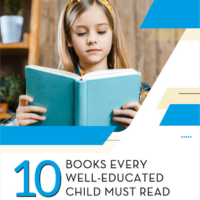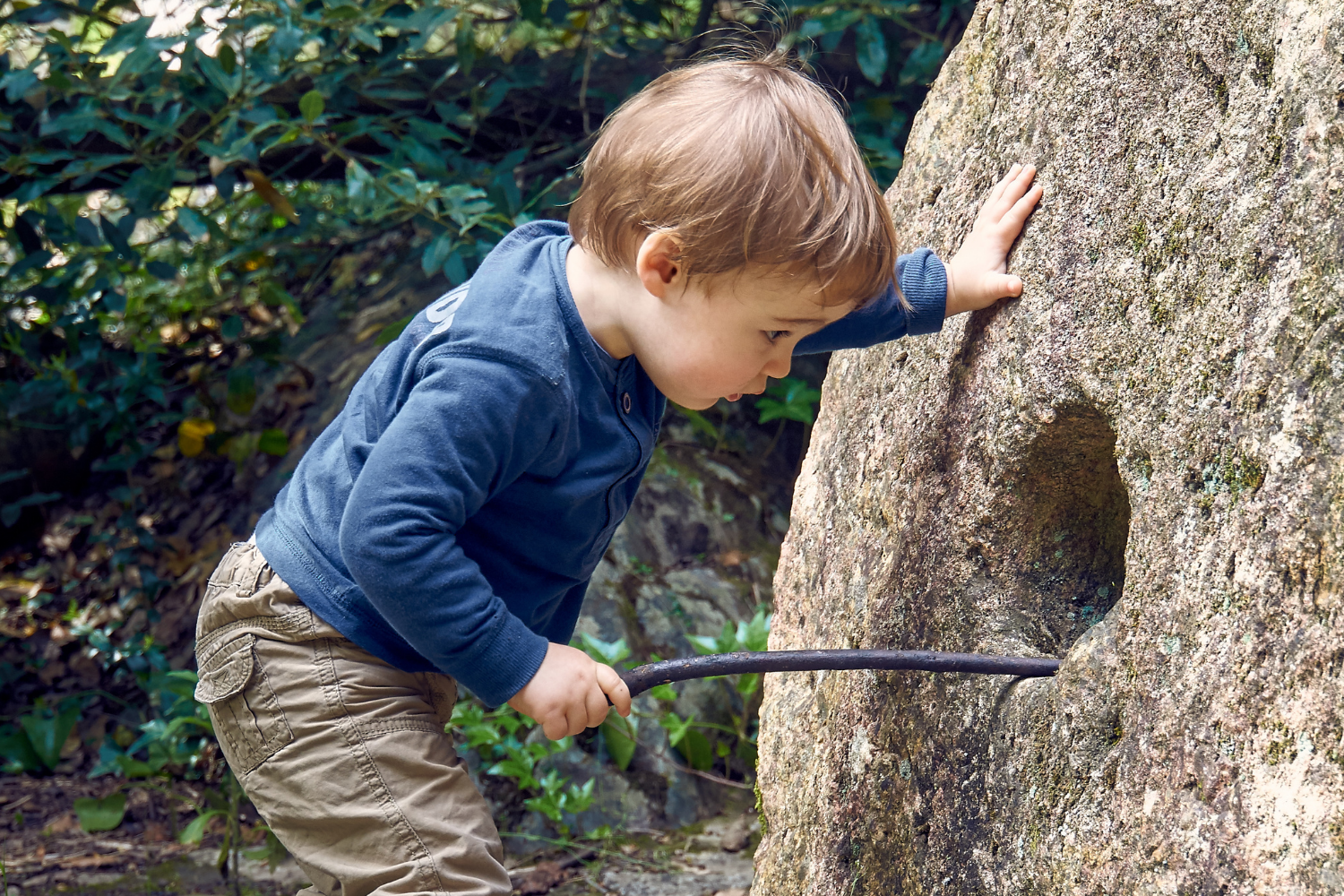Perhaps, you have chatted with other family members or friends to learn that their schooled children have already met certain milestones, which yours have not.
Or maybe you have a six-year-old who hasn’t begun to read but all of his friends in school are reading.
Whatever the comparison is you have to remember that your children are on a different trajectory than their schooled peers and even their homeschooled peers.
If you find yourself worried that your children are behind, instead of falling into the trap of comparing your children, focus on the unusual things they have done or the particular interests they’ve developed because they are being homeschooled.
Perhaps your eight-year-old son has learned 20 poems by heart or fallen in love with ancient history or memorized his list of prepositions!
Or it’s possible that your son has taken an interest in woodwork and has been building things like the homeschooled boy I knew who had a collection of knives that he’d carved out of wood.
“To be nobody but yourself in a world which is doing its best, night and day, to make you everybody else means to fight the hardest battle which any human being can fight; and never stop fighting.”
The woodwork may seem irrelevant to you, but it’s not. It’s a pursuit that contained many gems for this child.
This boy had developed an interest in and a passion for woodwork. Being interested in things lets kids discover what they are good at, what they enjoy doing, and it makes them grow into more interesting people. Most children today are only interested in their screens, and they will probably grow up to be pretty dull individuals.
He had also developed his fine motor skills, because it requires precision to carve wood with a knife, and he must have good control over his fingers. Many children lack fine motor skills and struggle in their penmanship because of it.
Not only had he carved one knife from wood, but he had a collection of different kind of knives that he had carved. During this process, he had educated himself about the kind of knives we make.
Before he began making his knives, he had to imagine the end product which required a good use of his imagination and further helped to develop it. A strong imagination is necessary for any sort of genius to emerge.
Compare the boy’s above skills and traits to the many useless things children do in schools, such as reading books that aren’t worth reading or spending time studying for standardized test.
Keep Your Blinders On
What I discovered while teaching my children is that when a homeschooled child is about nine or ten, your friends will begin to notice a difference between their children and yours. They might comment on what great readers your kids are or how they seem to love learning or how mature and polite they are.
You’ll start to see your children pass their public-schooled peers up in various subjects, and your children will have a love of learning that their schooled peers have lost. If you are homeschooling using sound methods, your children will also be miles ahead in their vocabulary and reading ability. Plus, they’ll have a love of reading too, which is always key to a good education.
But, until then you’ve got to be patient and keep your blinders on.
Be like a race horse. Some race horses wear blinders to stay focused on getting to the finish line.
Not that you’re in a race, but you do have a finish line. Your finish line is the day your children graduate from high school.
You don't want to be distracted into thinking you're doing a poor job when you're not; you're doing your job your way.
Comparison when your homeschooling can cause you unnecessary stress and doubt. Instead, stay focused on what you’re children have accomplished, not what their public-schooled peers are doing. If you can do this, you’ll eliminate half of the stress many homeschooling parents experience.
Because with homeschooling, there’s no race to the top; there’s only the top.
Don’t miss your free download:
Get a copy of Liz’s “could not live without” book, Education’s Not the Point: How Schools Fail to Train Children’s Minds and Nurture Their Characters with Essays by John Taylor Gatto and Dorothy Sayers.
About Elizabeth Y. Hanson
Liz Hanson helps parents raise and educate whole children by bridging timeless wisdom with modern research.
As an educator, writer, and Love and Leadership Certified Parenting Coach with 23 years of experience, Liz specializes in guiding families through the transformative early years and the homeschooling journey. After successfully homeschooling her own children, she now devotes her expertise to helping other parents get it right from the start.
Liz is a homeschooling thought-leader, as well as the creator of three unique online courses:
Whether you're navigating early childhood, considering homeschooling, or wanting to nurture a genuine love of learning in your child, Liz offers practical guidance rooted in proven principles.
One-on-one consultations available.
"I know Elizabeth Y. Hanson as a remarkably intelligent, highly sensitive woman with a moral nature and deep insight into differences between schooling and education. Elizabeth's mastery of current educational difficulties is a testimony to her comprehensive understanding of the competing worlds of schooling and education. She has a good heart and a good head. What more can I say?”
—John Taylor Gatto Distinguished educator, public speaker, and best-selling author of Dumbing Us Down: The Hidden Curriculum of Compulsory Schooling. For a copy of The Short Angry History of Compulsory Schooling, click here.



































































































